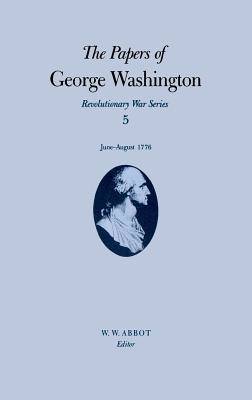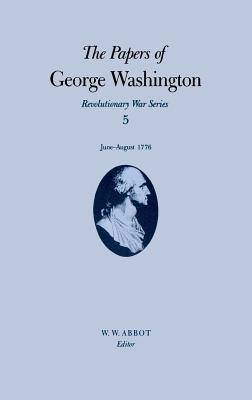
- Retrait gratuit dans votre magasin Club
- 7.000.000 titres dans notre catalogue
- Payer en toute sécurité
- Toujours un magasin près de chez vous
- Retrait gratuit dans votre magasin Club
- 7.000.0000 titres dans notre catalogue
- Payer en toute sécurité
- Toujours un magasin près de chez vous
Description
Volume 5 covers the preliminary phase of the New York campaign, the period from mid-June to mid-August 1776 when the stage was set for Washington's greatest challenge yet as commander in chief of the Continental army. As the summer weeks passed, the British concentrated a massive military force in New York Harbor, bringing in thousands of Redcoats and German mercenaries backed by the guns of a large fleet. "The Powers of Despotism," Washington wrote in August, "are all combined against [America], and ready to strike their most decisive Stroke." Not knowing exactly where the stroke would fall, Washington wrote urgently to Congress and the states seeking reinforcements for the extensive lines that he was obliged to defend, while vigorously pushing forward construction of fortifcations and efforts to obstruct the Hudson River. At every opportunity he sought and read any piece of intelligence regarding the enemy force and its intentions.
Washington could not focus his thoughts solely on the defense of New York City, however, for letters from the north informed him of the disastrous American retreat from Canada. That alarming situation elicited from Washington detailed consideration of the strategy to be pursued in defensing the upper end of the vital Hudson River-Lake Champlain corridor. Other correspondence concerned threats from internal enemies, conspiracies allegedly fomented by disaffected persons to undermine the American cause through subversion and sabotage. Such reports resulted in the execution of Thomas Hickey, a soldier in Washington's personal guard, for treachery in late June and the forced removal of many suspicious persons from New York City a short time later. Although the reading of the Declaration of Independence to the Continental army in early July boosted its morale, Washington continued his unrelenting efforts to check disorder and discord at all levels and to overcome the spirit of disunity that threatened the American cause as much as did British arms. "Let all distinctions of Nations, Countries, and Provinces," he told his men on 1 August, "be lost in the generous contest, who shall behave with the most Courage against the enemy, and the most kindness and good humor to each other." Washington's roles as miltary commander and political leader cannot be separated.
Spécifications
Parties prenantes
- Auteur(s) :
- Editeur:
Contenu
- Nombre de pages :
- 739
- Langue:
- Anglais
- Collection :
- Tome:
- n° 5
Caractéristiques
- EAN:
- 9780813914473
- Date de parution :
- 29-10-93
- Format:
- Livre relié
- Format numérique:
- Genaaid
- Dimensions :
- 156 mm x 234 mm
- Poids :
- 1242 g

Les avis
Nous publions uniquement les avis qui respectent les conditions requises. Consultez nos conditions pour les avis.






